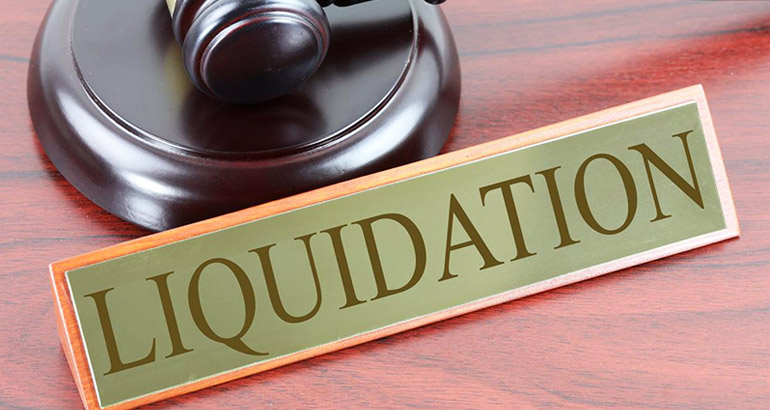Our Company Liquidation Ideas
Our Company Liquidation Ideas
Blog Article
The Main Principles Of Company Liquidation
Table of ContentsThe Best Strategy To Use For Company LiquidationRumored Buzz on Company LiquidationNot known Details About Company Liquidation Company Liquidation Things To Know Before You Get ThisCompany Liquidation Can Be Fun For Anyone
A liquidator is specifically appointed to oversee the winding up of a company's events in order for it to be shut down generally when the company is declaring bankruptcy. The liquidator is an impartial third event who supervises the sale of company assets in order to repay any kind of arrearages.Their role includes, but is not restricted to: Neutral Movie director: A liquidator is charged with working as an impartial 3rd party to oversee the whole company liquidation process. Develop Declaration of Affairs: Liquidators must develop a comprehensive statement of events document. This document is dispersed to lenders, detailing the current financial standing of the service at the time of its liquidation.
After the liquidation of a company, its presence is eliminated from Companies Home and it ceases to be a legal entity. If supervisors navigated the procedure uncreative, there would certainly be no charges or personal obligation for firm financial debts anticipated. Now, with a clean slate, supervisors can explore brand-new business chances, though specialist appointment is a good idea.
The Facts About Company Liquidation Revealed
For instance, if even more than 90% of all company shareholders agree, liquidation can occur on short notification within 7 days, the minimal statutory notice for creditors. Nevertheless, generally, the bigger the liquidation and the more properties and resources the business has, the longer the procedure will take. 'Do I have to pay to liquidate my company?', the answer will depend upon whether your service has any type of possessions remaining when liquidating.

We comprehend that no two business coincide, which is why we will certainly take the time to be familiar with your company so we can recommend the most effective strategy for you. We just operate in your best interests, so you can be totally certain in the solution we provide.
The 8-Minute Rule for Company Liquidation
In the UK, there is a set procedure to folding or reorganizing a restricted company, whether it is solvent or bankrupt. This process is referred to as liquidation and can just be handled by a qualified insolvency practitioner (IP) in accordance with the Bankruptcy Act 1986. There are four major sorts of firm liquidation process: Financial institutions' Voluntary Liquidation (CVL); Required liquidation; Administration; and Participants' Voluntary Liquidation (MVL).

In these conditions, it is essential that the firm discontinues trading; if business proceeds discover here to trade, the directors can be held directly liable and it can cause the insolvency practitioner reporting wrongful trading, referred to as misfeasance, which may bring about lawsuit. The supervisors assign an insolvency practitioner and as soon as this has actually been agreed and confirmed, there is a meeting with the shareholders.
The supervisors are no much longer entailed in what takes place, consisting of the sale of the firm's possessions. If the supervisors desire any of the properties, they can alert the IP.
The Main Principles Of Company Liquidation
The major distinction is that the company's creditors put on the court for an ending up order which requires the bankrupt company into a liquidation procedure. Creditors take this activity as a last hotel because they have not received payment through various other forms of arrangement. The court selects an read here insolvency professional, likewise called a main receiver, to conduct the required business liquidation process.
This sort of business liquidation is not voluntary and supervisors' conduct is reported to the UK's Secretary of State once the liquidation process has actually been completed. Any type of supervisor that fails to coordinate with the IP or has been included in director transgression, or a deceitful act, click here now might result in serious consequences.
It is used as a way to secure the firm from any kind of lawful activity by its lenders. The directors of the business concur to make normal settlements to resolve their financial debts over a period of time.
Company Liquidation Things To Know Before You Get This
This supplies the business with time to develop a plan going ahead to rescue the company and stay clear of liquidation. At this factor, supervisors hand control of the firm over to the selected administrator. If a business is solvent yet the directors and shareholders wish to close business, a Members Volunteer Liquidation is the right choice.
The firm liquidation process is handled by a liquidator assigned by the directors and shareholders of the company and they must authorize an affirmation that there are no lenders remaining. The liquidation procedure for an MVL is comparable to that of a CVL in that properties are know but the profits are distributed to the directors and the investors of the company after the liquidator's costs have been paid.
Report this page